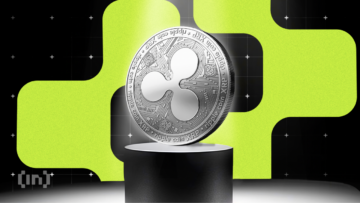“Financial freedom” — now, that’s a pretty common (and often incorrectly used) term that some tend to equate with being filthy rich or securing a high-paying job. That’s just not true. You don’t necessarily have to accumulate an abundance of wealth to become financially free.
So, what really is financial freedom?
Well, that’s precisely what this detailed guide aims to delve into — to give you a 360-degree view of what financial freedom means and how much money you need to be financially free.
In this guide:
Definition of financial freedom

Given that it is a very loosely used term, the definition of financial freedom may vary from person to person. That said, financial freedom in its truest sense means having enough cash, investments, and savings on hand to afford a lifestyle that you desire for yourself and your family. It is the ability to spend your money and time as you like.
True financial freedom is attained when you no longer have to work for money, and instead, your money works for you.
This is the point in life when you can lead a comfortable life without having to worry about expenses. This is when you can spend more time with loved ones, devote yourself to your passion, or switch to a profession that you have always wanted to pursue.
Consumer Financial Protection Bureau, the federal agency in charge of implementing and enforcing consumer financial laws in the U.S., has identified the following four criteria to define financial freedom:
- Having full control over day-to-day and month-to-month finances
- Steady progress toward meeting mid and long-term financial goals
- The ability to absorb any financial emergency or shock
- The ability to make choices that lead to a happy and fulfilling life without having to worry about money.
Note that you must have a recurring passive income, not just savings, to be financially free. That’s because savings will eventually run out sooner or later if you do not have a steady inflow of money.
/Related
More ArticlesFor those out of the loop, passive income is regular income from a source other than an employer or contractor. It is earned automatically without requiring one to do a lot of “active” work. For example, regular income from rental properties, limited partnerships, affiliate marketing, dividend stocks, etc.
What happens when you are financially free?
Financial freedom brings along a world of opportunities on all fronts of life. You do not even have to necessarily know what exactly you would want to do after achieving financial freedom. It’s just that once you are there, you will have all the time and resources to do the things you have always longed to do without having to worry about income.
Let’s just quickly brush through some of the biggest improvements you can expect after becoming financially free:
- No more rat races. You will no longer have to worry about things like slogging and competing hard for a pay hike or promotion in a job that you may not even like.
- In fact, you could even consider taking a lower-paying profession that you find more fulfilling.
- You are financially well-prepared for any emergency. Come what may — be it sickness, injury, business losses, or loss of property — you have a certain safety cushion to survive and navigate any such contingencies.
- The freedom to take a sabbatical to de-stress and focus on self-improvement.
- The ability to reevaluate your priorities in life without having to spend the bulk of your waking hours on work.
- The ability to engage in new hobbies without letting cost become a factor.
- Peace of mind. Or, at the least, a feeling of ease knowing that your personal finance is sorted and living expenses or emergency funds aren’t going to be issues anymore.
Financial freedom vs. financial independence

Financial security, financial independence, and financial freedom — these terms are often used interchangeably. However, they’re not exactly the same. Let’s quickly go through the definition of each.
- Financial security: It is the first stage toward achieving true financial freedom. Being financially secured means, you have enough passive income coming in to cover your basic living expenses even if you quit your job today. And “basic living expenses” mean the cost of food, shelter, and clothes.
- Financial independence: It is the second major milestone in the pursuit of financial freedom. To achieve financial independence means you are earning enough passive income to sustain your current lifestyle even without a job.
- Financial freedom: Being financially free means your earnings from passive income sources are large enough to accommodate the lifestyle you have always dreamt of.
Steps to follow if you want to achieve financial freedom
To become financially free, you have to take care of a few basics. For example, you will have to pay off all your consumer debts (such as credit card debts or student loans, etc.). Then you will have to build a safety net of savings fund and invest smartly to generate a steady inflow of passive income.
Unless you were born wealthy, there is no alternative to working hard and planning your way up. The first step is to have clarity about what you want and then plan accordingly. Here’s a step-by-step approach experts generally recommend:
5 steps toward financial freedom

- First, define what financial freedom means to you. This is relatively easy to figure out — just imagine how you would spend your days if money wasn’t an issue. What would you want to accomplish? That’s your personal version of financial freedom.
- Next, try to find how much money you would require to lead that life you have always dreamt of. Calculate how much you will need to save per month to fund your ideal lifestyle.
- Make a detailed and practical plan to start saving accordingly. Figure where you can reduce unnecessary costs and redirect that money into your savings.
- Similarly, draw an investment plan and start investing strategically. Diversify your investment portfolio to hedge against unfavorable market conditions in the future. Furthermore, consider consulting a financial expert who can help you find reliable and profitable investment options.
- A simple and frugal lifestyle often helps. So try to live below your means to the extent practically possible and avoid wasteful spending on short-term gratifications. Remember, financial discipline is crucial, and your goal of achieving financial freedom will end up being just a pipe dream without it.
At the risk of stating the obvious, the earlier you start working on your plan, the better. The best time to start saving and investing is in your early-20s. The second-best time is now, without any further delay.
How much money do you need to achieve financial freedom?

There is no one-size-fits-all answer to this because the amount will vary from person to person depending on various factors including their lifestyle goals. That said, the amount of money you will need to achieve financial freedom is generally a function of your annual income and expected living expenses per annum.
For a general idea, you may use the “25x Rule for Retirement” to calculate how much you might need to reach financial freedom.
The 25X Rule is relatively simple, and it works by assuming that the annual retirement income you expect to make will come from your own savings:
- First, figure out what kind of lifestyle you intend to lead after retirement.
- Next, try to make a rough budget that would allow you to sustain that post-retirement lifestyle. Make sure to take inflation into account and calculate the amount that you will need each year.
- Multiply that amount by 25 to get a general idea of how much you’ll have to have in savings by the time you retire. For example, if you expect your post-retirement lifestyle to cost $70,000 a year, you will need to save around $1.75 million before retiring.
So, are you up for the challenge?
It’s never too late to embark on the pursuit of true financial freedom. However, as we said before, the earlier you start, the easier it gets for you.
Your chances of achieving financial freedom increase substantially if you save at a healthy rate, minimize your debts, and control your credit. So, you might want to start working on those fronts right away, if you haven’t already.
Staying updated with markets and financial news helps as it can lead you to attractive investment opportunities while also helping you to adjust your investment portfolios as per market conditions. And whatever you do, do not hesitate to consult a financial expert should you ever feel lost.
Good luck : )
Frequently asked questions
What does financial freedom mean?
How do I achieve financial freedom?
How much money do you need for financial freedom?
Why is financial freedom important?
What is the first step to financial freedom?
Trusted
Disclaimer
In line with the Trust Project guidelines, the educational content on this website is offered in good faith and for general information purposes only. BeInCrypto prioritizes providing high-quality information, taking the time to research and create informative content for readers. While partners may reward the company with commissions for placements in articles, these commissions do not influence the unbiased, honest, and helpful content creation process. Any action taken by the reader based on this information is strictly at their own risk. Please note that our Terms and Conditions, Privacy Policy, and Disclaimers have been updated.









